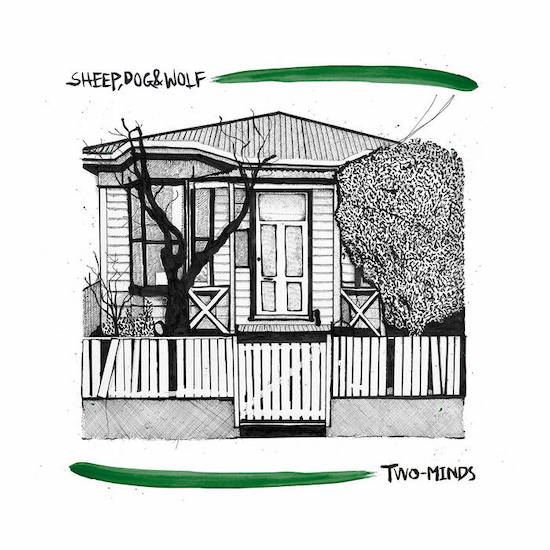Eight years after his folk pop debut, Daniel McBride, under his guise as Sheep, Dog & Wolf, has returned with his second full length album. Written, recorded, and performed entirely by McBride, Two-Minds is far from a basic singer-songwriter effort. Instead the New Zealand artist leans into disjointed orchestral influences, shaping songs around dense arrangements, fanciful woodwinds, and multi-tracked vocals that form pseudo choirs.
Songs throughout Two-Minds follow structures akin to movements, with bold openings being revisited in quieter, more reflective reprisals that feel more like departures than progressions. ‘Deep Crescents’ exemplifies this approach, with its frantic staccato piano and vocal fading out as a reprise of the same lyrics, now with a soft clarinet backing the hushed vocal.
‘Cyclical’ follows similar waves, building a dreamy piano arrangement (which sounds like it was cribbed from an early Tori Amos record) into a crescendo of trilling woodwinds, heightened vocals, and a rare bit of guitar before receding as a gentle, sparse whisper.
Two-Minds was written about McBride’s struggles with his physical and mental health. And while he addresses his difficulties with remarkable candour, the layers of his vocals create a sense of remove. It’s not the distance of someone speaking softly, but the double take of being uncertain if you heard correctly. It makes you listen closer, but it also removes any overly-confessional quality — and subsequently, awkwardness — from his disclosures.
It is also ironic that what was probably intended as a very personal album about his own sense of alienation feels fairly universal at the moment. For better or worse, Two-Minds hits squarely on the nose as the world starts to slowly emerge from lockdown. So while some might feel very seen when McBride sings, “Who would I even be without my anxiety”, those who have never been failed by their bodies or neurotransmitters before can still use this as a soundtrack to their return to normalcy.
Two-Minds was meant to reflect McBride’s attempts to return to his own version of normal. The sharp dissonance and hints of whimsy are part of the melodrama of that recovery, and the knowledge of how that melodrama would play for an audience. What McBride didn’t know is that the audience would all have their own versions of the same joke.


